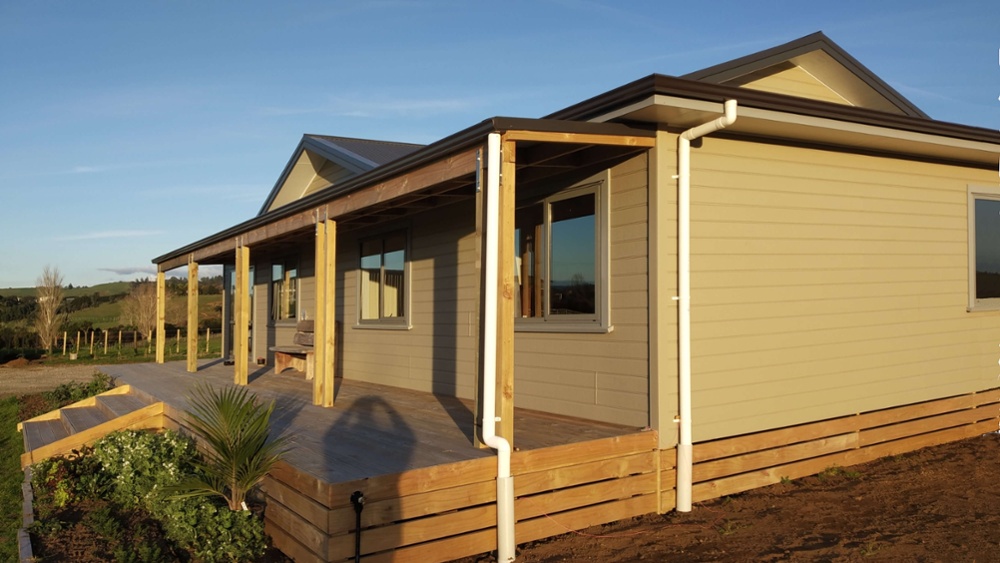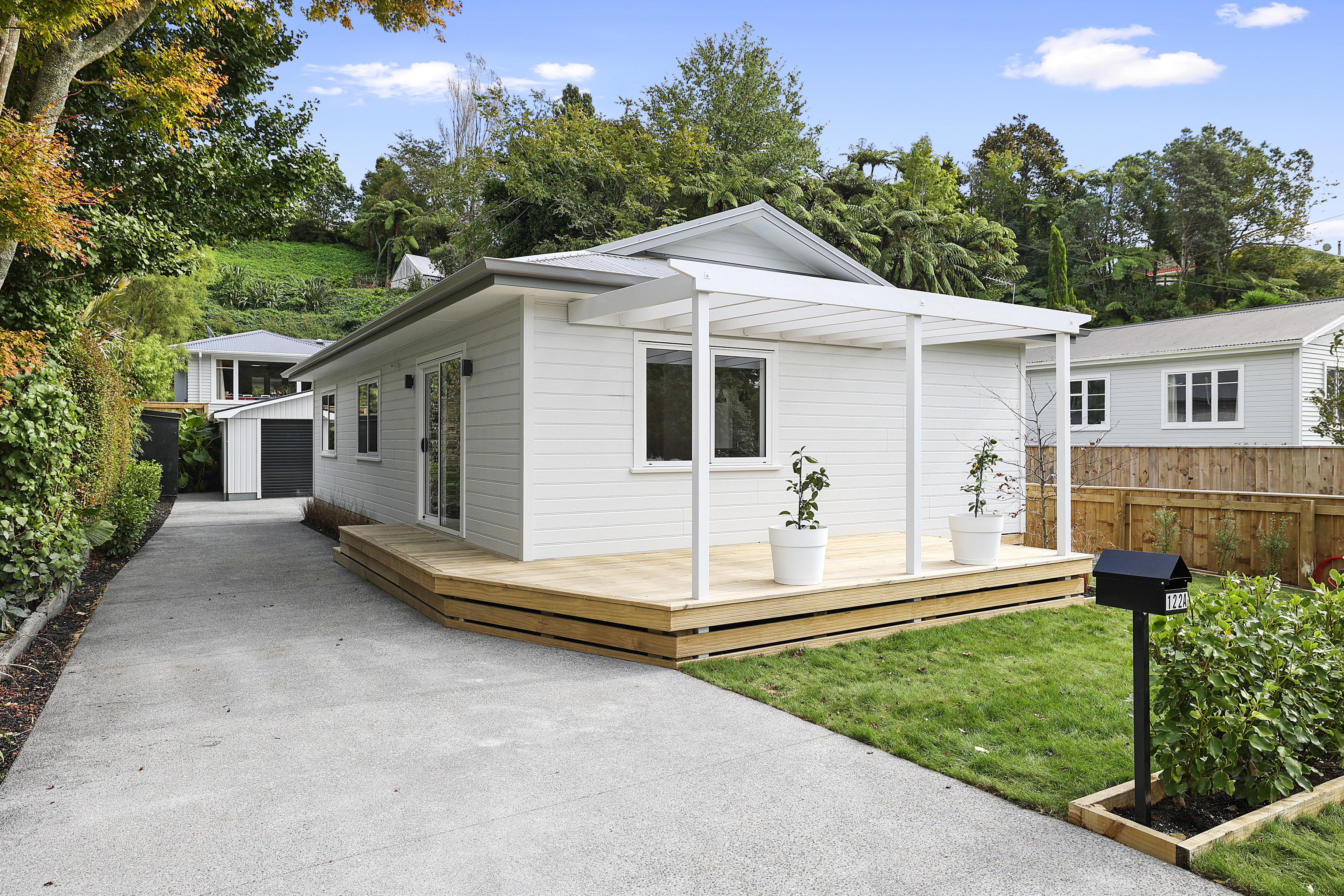The benefits of good farm accommodation

Providing accommodation for your key employees has several well-known benefits. With the right farm housing, you’ll attract the best possible workers, receive certain tax benefits, and increase your farm’s value. On the downside, there are a few logistical barriers to investing in housing, and key considerations you need to be aware of, should you choose to provide or improve the housing for your workers.
In this article we’ll cover why offering new farm accommodation is so important to farmworkers, as well as some key considerations you need to bear in mind. Whether you’re looking to build a new farm home, replace existing units, or see whether your existing housing solution meets current legislation, this article will help uncover the answers.
Providing farm accommodation - the benefits
Before we explore some of the considerations and challenges that farm accommodation can deliver let’s first explore some of the benefits.
Attract and retain the best farmworkers
Looking through farm hand jobs on Seek, and other listing sites, quickly highlights how good farm homes can play an important part in attracting the right candidates. Some listings highlight that accommodation is provided, with some going as far as using the number of bedrooms, modernity, and features to increase the appeal of the role. This sets the role apart from similar job listings where accommodation is not provided. Making the listing as attractive as possible can increase the volume of applicants, which gives the advertiser the pick of the bunch when choosing the preferred candidate.
Farmworker housing can also be a key part of retaining staff. This is important as time and energy have gone into training that member of the team and losing them means starting from scratch. Offering them a nice, modern, warm house for them and their family gives them one more reason to stay in the role, reducing your costs in the long term.
If a job doesn’t provide accommodation then the candidate has to consider local rental costs, travel, and whether the available rental stock will be warm and suitable. By providing farm worker accommodation you remove these barriers which may cause the right candidate to say no to the job.
Increased land value
Having additional dwellings on your farm can increase its property value considerably. For many prospective farm owners, knowing that staff accommodation is included can sweeten the deal as it’s one less investment for them to make. Ultimately the presence of additional dwellings on the farm gives more options, which can increase the number of prospects interested in the farm.
Farm accommodation can be easily repurposed as accommodation for guests, events, and farm stays. Having a property with a second dwelling is becoming increasingly popular due to the opportunity to rent it out on an informal basis. Sites like Airbnb, Bookabach, and Farmstays are allowing property owners to profit off these dwellings if there’s no immediate staff worker needed. This flexibility allows the new owner to profit without any major changes to the property. All of this equates to the potential for more interest in your farm, which may in turn result in more competing offers and an increased sale price.
Farmworker accommodation - expenses and GST
Providing farm accommodation on your farm can come with new tax obligations. For example, you’ll be able to claim some of your investment in accommodation back as an expense. You may be able to claim additional expenses (Business Govt) incurred in providing accommodation and other benefits to a worker. For example, the cost of groceries, heating, and bed linen could be tax-deductible. PAYE paid to Inland Revenue will also be deductible. The farm accommodation will likely count as a farm asset so it’s essential you speak with an accountant about tax filings regarding your farm accommodation.
You will be liable for GST on accommodation supplied to workers if it’s in a commercial dwelling, like a hotel, motel, farm stay, inn, hostel, or camping ground. If the accommodation is a private residence, such as a house, then it is not liable for GST. If you supply your employees with other non-cash benefits apart from accommodation, you may have fringe benefit tax obligations. For example, the use of a car or subsidised transportation.
Providing farm accommodation - the challenges
When building a farmhouse, you’ll need to consider the risks. Embarking on a new build takes a lot of time, and poses a range of health and safety hazards. These concerns are largely resolved when working with a prefabricated home. The rural terrain is no longer an issue for builders and the one-off transportation cost often works out to be cheaper than the daily travel costs of on-site builders and material deliveries.
Rental standards
Staff count as tenants if they’re staying in farm accommodation. This means the rules for the accommodation sit in the same category as any residential rental property. What this means is that the house needs to meet the standards for Healthy Homes compliance, be regularly inspected, and have landlord insurance.
As the landlord (and employer), your responsibilities can be complex. You must abide by the obligations outlined in the Residential Tenancies Act and the Housing Improvement Regulations Act as well as all of the standards outlined for private rental accommodation. Many farmers opt for a new build for their farm home because they’re more likely to meet the legal standards, and generally require less ongoing maintenance than an older, existing dwelling. With a new house, you can dramatically reduce the risk of major issues with the property, which will save you time and energy.
The Healthy Homes Act requires any rental accommodation (even farmworker accommodation) to meet minimum standards for insulation, ventilation, and heating. As you weigh up the cost of investing in new or replacement farmworker housing, it’s worth considering the cost of bringing your existing, older farm housing up to these legal standards.
Additionally, Worksafe outlines requirements for the location and minimum safety standards of the accommodation supplied to farmworkers. This includes, but is not limited to:
-
Locating accommodation away from stockyards and similar.
-
Not having machinery and chemicals stored nearby.
-
Bedrooms need to be a minimum of 6m2 for one person, 9m2 for two, and 2.4m high.
-
Key furnishing should be provided including fridges, washing machine, and freezer.
-
Working smoke alarms are essential.
You can find the full list of requirements and other useful information here as a downloadable PDF.
Working for accommodation
According to Employment New Zealand, you cannot directly pay a person in accommodation only. Payment for work done must be in money. The employer and employee are free to enter an accommodation arrangement and deduct from wages the reasonable cost of the accommodation. Such agreements need to be in writing. The value of the work must be written down in the employment contract and agreed to by the employee. The job cannot be contingent on the employee staying in the accommodation. If no specific written agreement exists as to the cost of the accommodation to be deducted, the legislation defaults to provisions set out in the Minimum Wage Act, where an employer can deduct 15% of the employee’s wages calculated at the relevant minimum wage rate for board or 5% for lodgings only.
Cost
Building a new house in a rural environment can be quite expensive. While the house plan may seem affordable, the additional travel expense of labourers and delivery fees for materials can quickly add up the further you are from the main hub. Add to that the additional health and safety requirements of managing a working farm with builders and deliveries and you’ll quickly see the time cost as well as the financial. Especially if the building disrupts operations in any way.
The good news is that prefabricated homes can greatly reduce a lot of these concerns, while still delivering all of the benefits we've discussed.
Every one of our prefabricated home designs meets the Healthy Homes requirements and the build requirements for PCBUs outlined in the Worksafe document. Not only that but the house is built off-site, reducing the number of days that outside contractors are present on your farm. Instead of paying for multiple weeks of travel for each contractor you pay for delivery once; the house itself.
Once your new farmhouse enters our production line it can be completed in 6-8 weeks and, due to manufacturing efficiencies and bulk purchasing, it can often be built at a cost less than a traditional on-site build of the same design.
If you’re interested in attracting the best talent to your farm and retaining key workers all while staying compliant with your legal requirements, then talk to the expert team at Manor Build about our farmhouse designs. Or you can start the adventure now by downloading our farm accommodation brochure.
Tags: Farm home

.jpeg)


